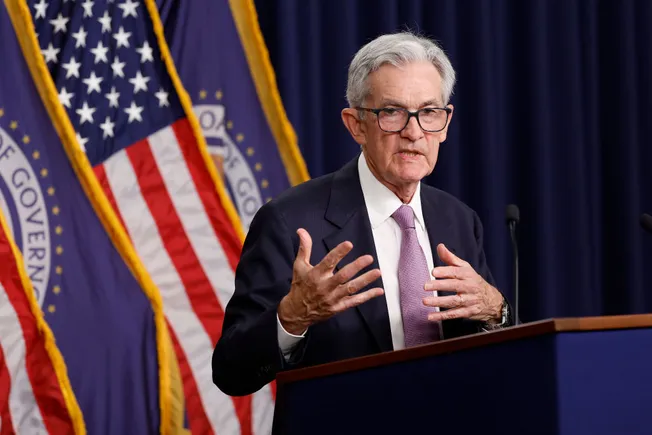Construction executives welcomed the Federal Reserve’s 0.25 percentage point rate cut Thursday, saying it’s a gradual step toward a larger boost to construction activity.
The cut marks the Fed’s second rate reduction in recent months, building on the 0.5 percentage point cut in September. September’s cut followed 11 rate hikes starting in early 2022 to combat soaring inflation.
The move means the central bank aims to foster a more supportive lending environment, an encouraging sign for construction activity, said Les Hiscoe, CEO of Boston-based contractor Shawmut.
“This is a trend in the right direction,” said Hiscoe. “We’re not fully back yet, but this will help drive movement. Developers are cautiously optimistic. With this second cut and an indication of more to come, developers have more confidence in bringing projects off the shelves.”
Still room for more cuts
Despite the optimism, the industry won’t feel the full effects immediately.
Hiscoe said many developments are still “in a wait-and-see mode” and may not pick up until 2026 or later, especially in sectors like hotels. A series of additional rate cuts could help unfreeze more capital, he added.
Although previously sidelined builds could soon ramp up again, barriers still remain in financing large-scale construction projects, said Cory Moore, CEO of Big-D Cos., a Salt Lake City-based general contractor.
“The rate cut is a positive development and could help open up some previously shelved projects,” said Moore. “We’re seeing some renewed interest, but significant growth in activity would also require more favorable loan-to-value ratios and equity requirements.”
Both Moore and Hiscoe said that until borrowing terms improve across the board, mass growth will be limited. Still, as the Fed continues to cut rates, that should push for more activity.
“The lower the rates go, the more deals we’ll see. But real momentum will depend on pent-up demand for space and an increase on consumer spending,” said Moore. “Lower rates from the Fed will likely lead to increased consumer spending in the long term, which could then fuel demand and ultimately drive more development.”
Lower rates have an immediate impact on firms’ bottom lines too.
On its third quarter conference call Wednesday, Los Angeles-based contractor Tutor Perini said due to lower rates, it anticipated saving between $15 million and $22 million in interest rate expenses next year, which would positively contribute to its overall profits.
For now, developers remain focused on high-end projects with the best return potential, said Hiscoe.
“The projects currently being built or being put in the pipeline are the highest level of class A commercial spaces,” said Hiscoe.

